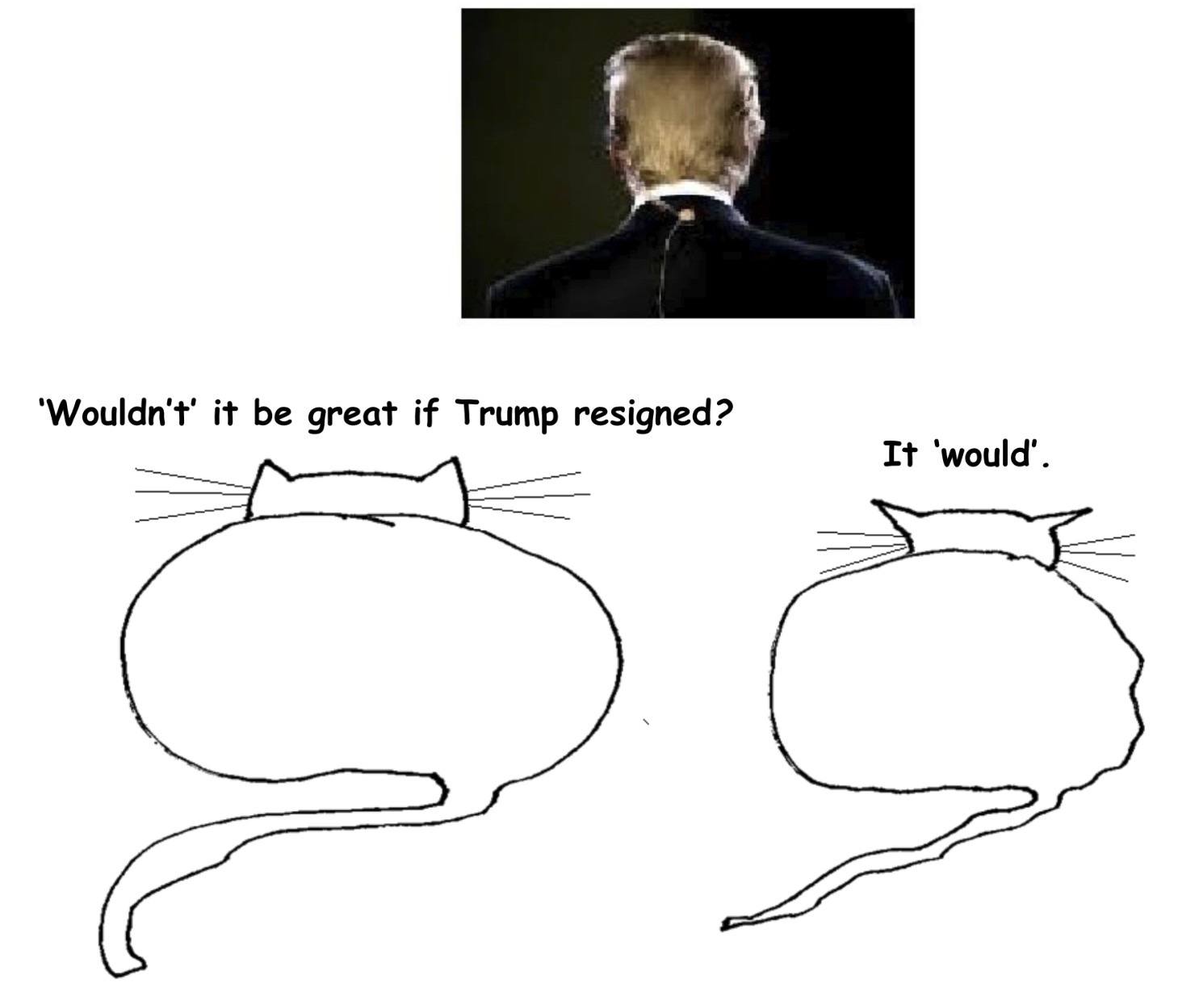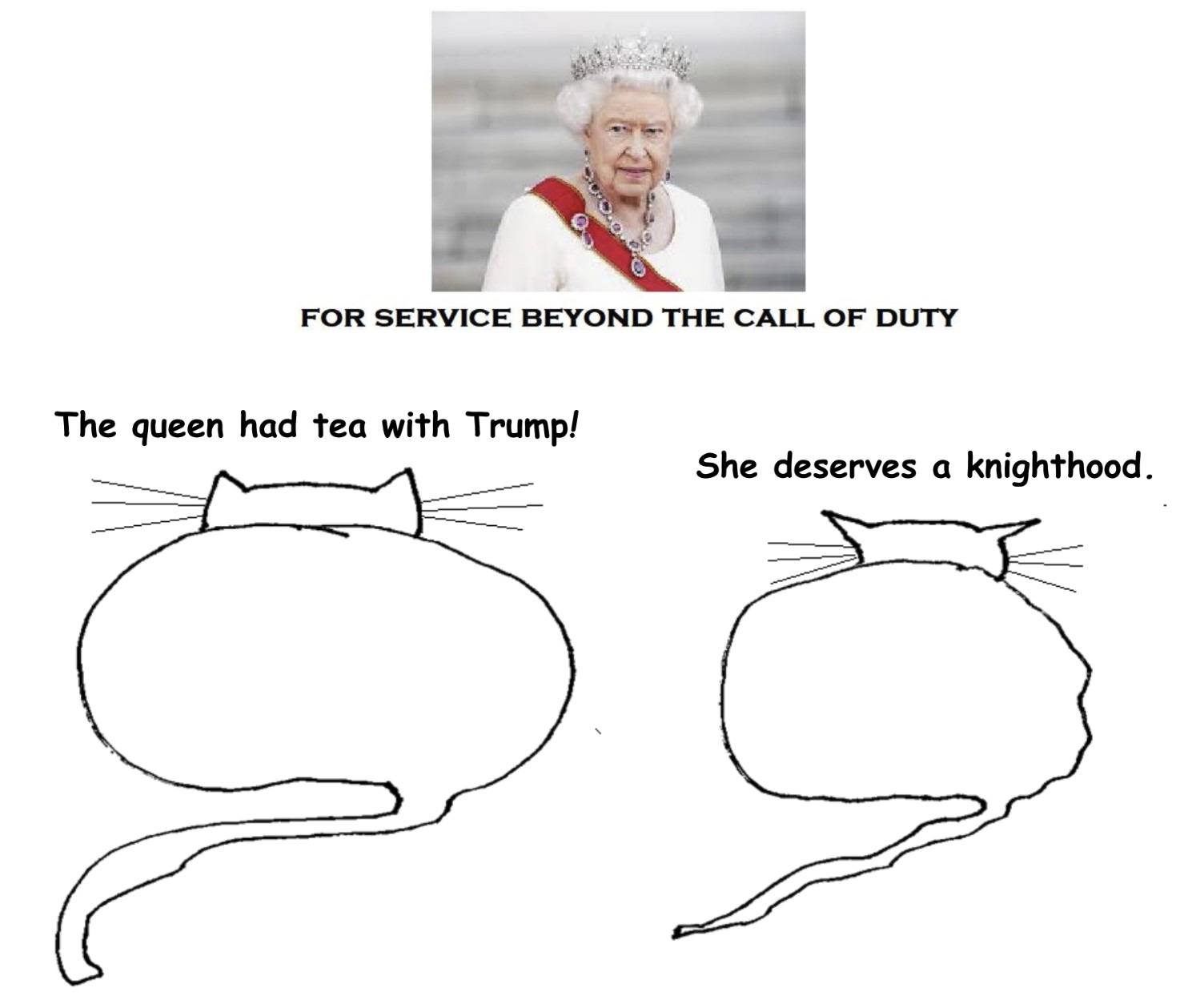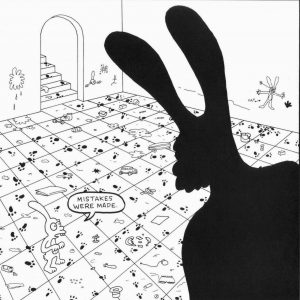
Dewitt Godfrey. Lincoln, De Cordova Sculpture Park, Lincoln, MA, 2012.
15 x 150 x 10 feet
by Leanne Ogasawara

We should first count our blessings that Dan Brown has never written about the painting. Though I suspect such a seemingly matter-of-fact picture as Velázquez’s Las Meninas would not serve as an easy target. With no hint of the occult –nor even a whiff of the Templars– it probably wouldn’t capture his attention. And yet, despite Dan Brown’s silence, Las Meninas is one of the most highly written-about paintings in history. You’ve got to wonder what is it about the the picture that has spilled so much ink? Philosopher Michel Foucault probably has a lot to do with this flood of art historical interest, since his interpretation of the painting in his 1970 book, The Order of Things, sparked what was a tidal wave of intellectual responses. But Foucault can’t account for all the attention. In fact, just recently three high-profile books (a novel and two well-received memoirs) were published on the subject of Velázquez ,in which there is nary a mention of the great philosopher.
So, then, what is it about Las Meninas?
Considered one of the greatest masterpieces in the Western canon, in the 19th century Europeans from France and England traveled to see it as if they were going on a pilgrimage. In those days, Spain was well off the beaten track and infrastructure had something to be desired. Manet, for example, was hardly able to withstand the hardships of his time in Madrid (practically starving to death he claimed)–but like walking the Compostela, he considered it a pilgrimage. One suffered– but did so in the hope of greater understanding. Manet would go on to feel transformed by his time in Madrid and considered Velázquez to be the greatest painter of all time. It is a fact that to see the significant works by Velázquez, you will need to travel to Madrid. The same can be said for Bosch and to some extent for Titian. One must make the pilgrimage to the Prado to see really understand these artists. I would add that the Louvre could learn a thing or two from the Prado, whose staff strictly enforces a no-photography rule, while continuously hissing at visitors for lowered voices. It all contributes to the heightened reality of a visit to the Prado. Read more »
by Sarah Firisen
 I have a friend who is a travel agent. The days when we all talked on the phone to travel agents in order to book any travel are long gone. These days, for the most part, travel agents, the actual human ones, deal with business travel and high end travel for elites. My friend was telling me about being contacted by a client who was the high end elite type, at 3am, saying her email wasn’t working and could my friend text her their itinerary. Now putting aside the obnoxious behavior in expecting a reply from anyone at 3am, my first response was “doesn’t she use Tripit?” Or Google Trips, or even the airline mobile apps? At any given time, I can find all my travel details in all of those ways and sometimes others (business trips get automatically put in my Google calendar). Travel is so automated and online now, it’s amazing to me that anyone wouldn’t take advantage of these tools.
I have a friend who is a travel agent. The days when we all talked on the phone to travel agents in order to book any travel are long gone. These days, for the most part, travel agents, the actual human ones, deal with business travel and high end travel for elites. My friend was telling me about being contacted by a client who was the high end elite type, at 3am, saying her email wasn’t working and could my friend text her their itinerary. Now putting aside the obnoxious behavior in expecting a reply from anyone at 3am, my first response was “doesn’t she use Tripit?” Or Google Trips, or even the airline mobile apps? At any given time, I can find all my travel details in all of those ways and sometimes others (business trips get automatically put in my Google calendar). Travel is so automated and online now, it’s amazing to me that anyone wouldn’t take advantage of these tools.
There’s a lot of hand wringing, actually maybe not enough, about automation taking jobs. But even before it has a serious impact on the labor market, it has changed a lot of other things. This Atlantic article points out that it already, and in fact for many years, has impacted how we interact with people who work at banks, stores, car parks. It’s impacted how those buildings are constructed in fact – these days, it’s rare to find a US bank that doesn’t have a large ATM foyer. I hadn’t thought about it until I read this article, but ATMs were some of the first large scale automations to really impact our day-to-day lives in a major way. Of course, these days I rarely use an ATM either; I don’t use a lot of cash and I deposit the rare check I get sent through my bank’s mobile app. Read more »
by Brooks Riley

Sometime back in February I saw a gorgeous thing. Maybe it was February 6, when it happened. More likely it was a day or two later.
What I saw was the all-but simultaneous landing of a pair of booster rockets from SpaceX’s Falcon Heavy rocket. It pretty near took my breath away.
And then I saw that it was supposed to have a red Tesla roadster as its payload.
I say “supposed” because at first I thought I’d seen FAKE NEWS. Really, a Tesla roadster? How vain. It can’t be true.
But it was.
Then I learned that the Tesla contained a plaque inscribed with the names of over 6000 SpaceX employees. Much better, I thought, much better. And there was a plaque on the dashboard that said “Don’t panic”, homage to Douglas Adams, The Hitchhiker’s Guide to the Galaxy. Someone has a sense of humor.
Elon Musk, the man behind this madness, explained: “I mean, it’s kind of silly and fun, but silly fun things are important. Normally for a new rocket they’d launch a block of concrete or something like that. That’s so boring. The imagery is something that’s going to get people excited around the world. It’s still trippin’ me out.”
OK. We’re good.
On with the show. Read more »
by Jamie Elsey
 Although some may be heralding the end of free speech, 2018 has been a year of far-reaching debate and discussion. In the coming months, we can anticipate attending or streaming discussions ranging from such topics as the role of race in American politics to the nature of truth, from existential threats posed by artificial intelligence to the value of religion.
Although some may be heralding the end of free speech, 2018 has been a year of far-reaching debate and discussion. In the coming months, we can anticipate attending or streaming discussions ranging from such topics as the role of race in American politics to the nature of truth, from existential threats posed by artificial intelligence to the value of religion.
As sure as I am that many readers will share my enthusiasm for these events, I’m also certain I’m not the only one frustrated by the sense that many such talks end up with the participants merely talking past one another. It’s as if the speakers have agreed to play chess, but change the rules to drafts whenever they’re put in check. I at least find myself in the good company of Stephen Fry who, well over an hour into the recent Munk debate on political correctness, expressed his bemusement that “people will look back on this debate and wonder why political correctness wasn’t discussed”.[1]
Failure to properly define the topic of discussion is, I believe, a primary cause of this frustration. Changing the format from one of debate to one of open conversation is less conducive to the kind of evasiveness and rhetorical point scoring that characterizes purely combative interactions. However, even in open-ended conversation, we want to see opposing viewpoints properly challenged, and the problem of poor definition stands even when all participants are in apparent agreement. How do we know that we are in agreement if we don’t really know what we’re agreeing to?
There is nowhere this issue of definition looms larger than in recent discussions of religion, God, and morality. Grappling with these topics is as vital as it is difficult. We can’t expect to make any progress if we do not have a shared or at least mutually understood language with which to tackle them. Read more »
I’m planting an orchard in Shohola
–a river runs through there
and the light is good for apples
and other living things
The place is filled with riches:
eagles fly overhead on thermals preying,
rafters happen by laughing, waving
We have a boat I can use
to row out and, like a Tahitian gentleman,
offer red Cortlands or Braeburns;
or, if I so choose, a pear or a plum
I love the sound of a thing well said
and think, music when I sit with a good book
and imagine overlooking our orchard,
hearing the passing river harmonize
with a perfect line
And in my mind’s eye I even conjure
a snake in a tree pranking Eve,
and Adam the even more gullible,
but this time just for laughs because
I love the beauty and truth in laughter
Oh, and my children— their grove
blossoms at our orchard’s center;
they were the first, their limbs
have reached for light
and they have presented us
with their finest saplings
In my orchard I see myself
standing among trees reaching for
hanging fruit in pied beauty,
dappled light upon my shirt
my wife of many years is here
my kids come by with theirs,
friends show up every now and then;
the old ones dripping with nostalgia
but not tangled in the past,
who hold it but know enough to
be here now
Jim Culleny
January 2009
by Scott F. Aikin and Robert B. Talisse

Constitutional democracy is a system for conducting politics under conditions where citizens, understood as free and equal persons, disagree profoundly about what is good. Naturally, such disagreements extend to politics itself. That is, we expect democratic citizens to disagree, sometimes even sharply, about the fundamental aims and aspirations of government and its policies. The moral claim underwriting democracy holds that each citizen’s status as a free and equal person is respected when collective political decisions are made by way of a system that affords to each an equal say.
Still, in a democracy, we also expect disagreements over politics to extend beyond Election Day. Even after the votes are counted, citizens are nonetheless entitled to continue arguing over the wisdom, prudence, and even the justice of democratic collective decisions. What’s more, ongoing democratic engagement in the form of continuing scrutiny of political affairs is expected of citizens. Participation in ongoing political discussion is among the democratic citizen’s duties.
If democracy calls citizens to engage regularly in political discussion, there will be among them ongoing political disagreements. Disagreements over things that matter often get heated, sometimes even hostile. And yet political disagreement in a democracy must be conducted in a way that manifests a fundamental respect for each citizen’s status as a free and equal person. In a democracy, no citizen is inherently another’s boss or subordinate; and all of our political interactions as citizens must reflect that basic moral commitment. Read more »
by Jonathan Kujawa
In a miracle we neither understand nor deserve, some of the most outlandish inventions of mathematicians’ fevered imaginations have later prove eminently useful in the real world. We’ve talked about some of these here at 3QD. From using the stretchy math of topology to identify data clusters in medicine, to using exotic measures of distance to fill in large amounts of missing data, to using number systems coming from elliptic curves to create strong encryption systems. These are only a few of the gifts we’ve received over the years from mathematics. Several years ago the mathematicians who congregate at mathoverflow compiled a list of applications for each of the main areas of modern mathematics.
Many of these applications contribute billions of dollars of value to our modern world, and yet in nearly every case the mathematics underpinning these were developed years, decades, or even centuries earlier. Bringing a little math to things often pays off bigly.
Plus, doing math is just plain fun! I may be biased, but I say the (fun + value)/cost ratio of math is pretty close to unbeatable. To quote Steve Earle, “I’ll stand on Bob Dylan’s coffee table in my cowboy boots and say that”.
Last month I asserted one explanation for the “unreasonable effectiveness” of mathematics is its insistence on precision in our language and thought. There is a real power in the mere act of mathematization. Even if you can’t solve the problem using actual mathematics, thinking mathematically often lays bare the real questions, the real obstacles, and the possible paths to a solution.
That’s easier said than done. As any calculus student will tell you, one of the most difficult parts of using mathematics on a real-world problem is turning the messy, ambiguous chaos of the real world into something on which you can try to do math. Read more »
by Brooks Riley

by Jalees Rehman
 How can we toggle the immune system’s “off switch”? How do we deactivate the cells and molecules which form an essential line of defense for our body and protect us against invading pathogens once their job is done? Persistent inflammation after pathogens are eliminated can be very harmful to the body because oxidants and other injurious molecules produced by immune cells end up attacking the body’s own tissues and organs instead of the pathogens.
How can we toggle the immune system’s “off switch”? How do we deactivate the cells and molecules which form an essential line of defense for our body and protect us against invading pathogens once their job is done? Persistent inflammation after pathogens are eliminated can be very harmful to the body because oxidants and other injurious molecules produced by immune cells end up attacking the body’s own tissues and organs instead of the pathogens.
During an infection, immune cells become activated and mount an inflammatory response against harmful bacteria and viruses. Inflammation in a tissue or organ entails an increase in the number of immune cells which is achieved by the release of chemokines – molecules which beckon fellow immune cells to the sites of infection and inflammation – as well as the upregulation of molecules such as oxidants which help eliminate pathogens as well as important protein molecules. Some of the molecules released by immune cells – such as the protein interleukin 1β (IL-1β) – amplify inflammation and also cause fever, which is thought to improve the ability of our immune system to fight. In the case of bacterial infections, our immune system may be overwhelmed by the invading bacteria and thus needs the help of antibiotics which directly kill bacteria. Appropriate antibiotic treatments combined with the valiant efforts of a healthy immune system are usually sufficient to get rid of most pathogens. Once they are eliminated, the inflammation then subsides. The immune system switches into a cooling off mode, at which point immune cell numbers decrease and their attack activity diminishes.
Unfortunately, the immune system does not always stand down from an inflammation mode. Instead, immune cells remain hyper-activated in some patients and continue to engage in a fight even after the pathogens have been eradicated. Read more »
by Amanda Beth Peery
by Brooks Riley
 For someone who spent most of his life trying to get on Page Six, (the New York Post’s iconic gossip column), hitting Page One was pay dirt for Donald Trump. Now that he’s there, he means to stay there, devouring our attention for the foreseeable future. One could even argue that all his lies and deplorable actions are motivated by a single, sorry ambition, to be the center of attention at all times and in all places. Outrage sells.
For someone who spent most of his life trying to get on Page Six, (the New York Post’s iconic gossip column), hitting Page One was pay dirt for Donald Trump. Now that he’s there, he means to stay there, devouring our attention for the foreseeable future. One could even argue that all his lies and deplorable actions are motivated by a single, sorry ambition, to be the center of attention at all times and in all places. Outrage sells.
Outrage is also tiresome. Trump Outrage Fatigue set in long ago, but we still can’t ignore him. Or can we? If the fate of the world wasn’t at stake we would have dropped this guy long ago from our field of vision.
I’m spending more and more time off the grid of mainstream news coverage. There are other stories out there to excite us, to outrage us or to move us. I haven’t left the grid altogether. I do keep up. But my mind now homes in on stories at the bottom of the internet page, or the seemingly trivial fillers that pepper the meal of misery at the top. Here’s a small sample:
Ötzi’s Last Meal
What could be more important than the contents of Ötzi’s stomach? Certainly not the Big Mac wending its way through our leader’s digestive system. I’m not being facetious here. Ötzi is the gift that keeps on giving, ever since the 5300-year-old man who lay buried in ice for millennia was discovered by tourists in 1991 in the Ötztal Alps bordering Austria and Italy. Since then I have followed every gripping new revelation about Ötzi—what he wore, what he carried with him, how he was murdered. Ötzi is a time capsule spilling forth impossible secrets about life in the Copper Age. Now that his stomach has been found, lurking shriveled under his lungs, we know that his last meal was a hefty portion of ibex fat—not the meat itself but the subcutaneous fat that would help him withstand the bitter cold and give him endurance at high altitudes. According to a researcher, ibex meat tastes okay, but ibex fat tastes awful, so that the act of eating it must have been prophylactic, derived from some knowledge of survival strategies. Read more »
by Ashutosh Jogalekar
A rare and happy coincidence today: The birthdays of both John Archibald Wheeler and Oliver Sacks. Wheeler was one of the most prominent physicists of the twentieth century. Sacks was one of the most prominent medical writers of his time. Both of them were great explorers, the first of the universe beyond and the second of the universe within.

What made both men special, however, was that they transcended mere accomplishment in the traditional genres that they worked in, and in that process they stand as role models for an age that seems so fractured. Wheeler the physicist was also Wheeler the poet and Wheeler the philosopher. Throughout his life he transmitted startling new ideas through eloquent prose that was too radical for academic journals. Most of his important writings made their way to us through talks and books. Sacks the neurologist was far more than a neurologist, and Sacks the writer was much more than a writer. Both Wheeler and Sacks had a transcendent view of humanity and the universe, a view that is well worth taking to heart in our own self-centered times.
Their backgrounds shaped their views and their destiny. John Wheeler grew up in an age when physics was transforming our view of the universe. While he was too young to participate in the genesis of the twin revolutions of relativity and quantum mechanics, he came on stage at the right time to fully implement the revolution in the burgeoning fields of particle and nuclear physics. Read more »
by Gabrielle C. Durham

Folks love to pick on passive constructions. “Passive sentences are too wordy. They are unclear. They gave me a bruise.” Two out of three of these are objectively wrong. The third I can’t help you with.
Passive voice provides a valuable service. We all know when something bad happens, even if we do not know who or what caused the bad. The perfect opportunity to use the passive presents itself on such an occasion. If you insist on using active voice, you are forced to use the sloppy “someone” or “something” as the agents of nefariousness.
The house was destroyed, the livestock abducted, and the women were observed to be strangely beatific.
Something destroyed the house, someone abducted the livestock, and the absence of useless husbands pleased the women greatly.
Don’t get it twisted: The passive is not going to fit the bill every time. Reagan’s professing that “Mistakes were made” illustrates the weakness of the passive voice. No one is accountable in the passive, unless you consider whatever mealy-mouthed alleged subject follows the preposition “by.”
Your bicycle was run into by me in my car.
Eww. This is the verbiage of bureaucratic nightmare. Read more »
by Brooks Riley

by Christopher Bacas
Because we remained so long in Housing Court’s trash-strewn orbit, Management assigned us our own agent. Every week, I saw Hassidim in our lobby. One was bigger than the others, with a jellied midsection spilling over pants, bowing his long black lapels. He moved like a man barely acclimated to walking; legs chugging ahead, thighs rubbing, wisps of beard waving cilia-like from his jowls.
To introduce our new handler, Matthew, the property manager, came by. He was a small man who always spoke quickly, words folding back on each other, nervous laughter erasing their authority.
“This is Jo-El. He doesn’t work for me (chuckle, chuckle), the landlord brought him on to work with the building.”
In fact, our landlord’s name was posted on a public list of “New York’s Worst Landlords”. I submitted the open violations in our building to the Public Advocate and within days, his name appeared. The new arrangement was designed to get the owner off that embarrassing list. Jo-El wasn’t a lawyer by training, he was a fixer. His fixing kept broken things broken.
We shook hands. Jo-El didn’t smile. He pressed his lips together and looked down. Read more »
WITHERED ROSE
by Mohammad Iqbal
With what words shall I call you
Desire of the nightingale’s heart?
In a Country of Roses
You were named Laughing Rose
Morning breeze your cradle
Garden a tray of perfumes
My tears rain like dew
And in my barren heart your ruin
An emblem of mine
My life a dream of roses
A reed plucked from its native soil
I sing sweet songs of souls in exile
Translated from the Urdu by Rafiq Kathwari / @brownpundit